HIT CHANNEL EXCLUSIVE INTERVIEW: March 2025. We had the great honor to talk with a legendary musician, composer and 7-time Grammy Award winner: Stewart Copeland. He is most well-known as the drummer and founding member of The Police, one of the most successful bands of all time. He has also been a member of Curved Air, Animal Logic, Oysterhead and Gizmodrome. Stewart created “Wild Concerto”, a pioneering album which fuses orchestral composition with authentic animal sounds, recorded in the field by celebrated British naturalist, Martyn Stewart. “Wild Concerto” is released on Platoon Records, 18th April 2025 https://platoon.lnk.to/WildConcerto .
 Congratulations for the “Wild Concerto”, it’s a true masterpiece. Please give us some very basic information about its creation.
Congratulations for the “Wild Concerto”, it’s a true masterpiece. Please give us some very basic information about its creation.
Oh, thank you! It was an incoming call from Platoon Records, who is also my record company. They had this incredible library of sounds, collected by Martyn Stewart, who is a naturalist, who spent his life on his hands and knees, out in the jungles recording all these sounds, all these birds and other animals. They had this incredible library and they were wondering what to do with it. So, they suggested to me that I create a concerto out of it and I have a long history with using sounds as music, which I suppose began with my first film score for Francis Ford Coppola, “Rumble Fish” (1983), where I used loops of dogs barking, piledrivers, various sounds and used them as part of the rhythm scape. I had loops which in those days, were real loops, not figuratively loops, they were made of 2-inch tape, stuck together in a loop that goes around and around on mike stands in the studio, it was a real loop and I built these rhythms with these loops. Since then, with “Wall Street” (1987), I used dogs in the score, so, using sounds as part of music is something I’ve been doing for a long time. Also in Africa, sampling the Africans and curving their music into Western music. So, that’s where this idea came from.
Could we say that this album proves your versatility as composer?
Sure, you can say that all day.
Did you write “Wild Concerto” having any particular species in mind?
Well, yes. I don’t think the hyenas of the Skeleton Coast (ed: in Namibia) or the wolves of the Arctic, will care much, but this is really for the benefit of Homo sapiens, so that we all enjoy this planet and all of our neighbors and relatives and the other species, without them all disappearing. A lot of the species in these recordings have already disappeared. So, I suppose it’s for all species in general, but Homo sapiens in particular.
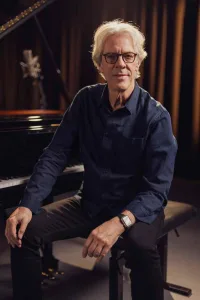
The melody of “White Throated Sparrow” is very addictive. What inspired you to write it?
The bird. It’s an interesting facet of human cognition and I learned all this because I did a documentary for the BBC (ed: “Stewart Copeland’s Adventures in Music” -2020) about what is music, why do we do music and why the society reward people who do music so richly, more than dentists. Talking to scientists at Harvard, Princeton and Stanford, I learned that pitch doesn’t actually exist nor does color; these are constructions of the brain. The brain sees a wave and turns it into pitch, so, this happens in the human brain or any animal’s brain. With that bird singing, it doesn’t have a pitch; it’s not a pitch, but it does have an articulation, it has a contour, it goes up and down, it has a rhythmic pattern. So, if I put a flute next to it, closely turning those non-pitches into real, melodic pitches and I put them right next to each other, the two merge, the human brain merges the two and applies the melody of the flute to the non-melodic bird and then take the bird away and that bird is now singing in tune. Also, with the wolves of the Arctic: They are howling with such soul and I put a trombone next to them and now they are the “Coltrane Wolves”, the deep jazz wolves of the Arctic.
“Indri and the Asian Barred Owl” is an excellent composition. Please tell us everything we should know about this great piece.
Well, one warning is that there are no drums on it, so, it’s all orchestra and jungle. I bang stuff, I make noisy music generally, but even drummers can love.
The electric crescendos in “Coltrane Wolves in the Arctic Circle” are amazing. How did it come about?
The electric guitar? Well, that’s my friend Rusty Anderson who plays with me when I do my concerto Police Deranged for Orchestra, he is the guitarist, but also his day job is that he’s been working with Paul McCartney for 20 years or something and he has a huge bag of tricks and he doesn’t get to play raging solos like that with Paul McCartney every day, but he’s got it in him.
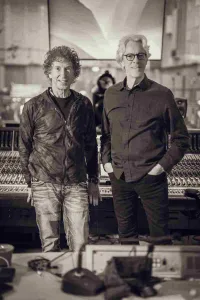
How important was the contribution of naturalist Martyn Stewart and producer Ricky Kej in “Wild Concerto”?
Martyn Stewart was a critical factor, his library is the central organizing feature of the whole piece. So, Martyn Stewart is right in there and he came to the recordings which was a lot of fun for him, because like I said, he spent his life out in the Third World, in the triple canopy jungle and to be at Abbey Road Studios watching an orchestra perform along with his birds, I was very much lit up by his enthusiasm and his enjoyment of the experience. Now, Ricky, I ‘ve won two Grammy Awards with Ricky Kej and he is really right in sync musically, in many ways, so, I just turned the recordings over the him and he made it all sound beautiful.
Did you have trouble choosing the animals sounds from the endless archive of Martyn Stewart?
Yes, I did, there is so much of it. So, basically, I subdivided it into three general categories: Background sound, which is the atmosphere of the jungle, the soundscape of either the tundra or the jungle or the desert or wherever, then, there were animals that were more rhythmic “bit-it bit-it/ bit-it bit-it” and I could use those to build a rhythm track and then there was like the sparrow who have a front line, top line melodic arc that I use in your face as the main melody. So, I would divide them into these different categories and then piece them together to see which fit. It’s important that I did not alter any of the sounds: I didn’t change the pitch, I didn’t stretch the rhythm. I placed them very carefully but I didn’t alter any of them.
Did you approach “Wild Concerto” the way you would score a soundtrack for a documentary about wild life?
Not really, because a documentary would be factual and all of the creative, fun, artistic things that I did with the animals would be not documentarily true. For instance, the different pieces are different areas where Martyn have landed and those were the animals you might find in that location, but you wouldn’t find them all in the same place: Half of the animals on the track would be easily on the other half of the animals on the track. So, documentarily it is inaccurate, but this isn’t a documentary, it’s art and it’s fun to listen to.
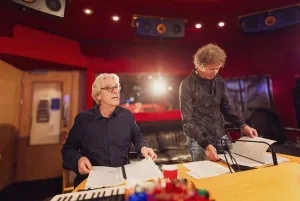
How challenging was it for you to work with Kingdom Orchestra at Abbey Road Studios during “Wild Concerto” sessions?
I got to feel like a Beatle for three days in the storied, legendary Abbey Road Studios, the big room. The Kingdom Orchestra were excellent, their conductor and boss is a friend of mine, Troy Miller and they played great because these orchestral players are brilliant. They’ve never seen the music before, they go into the studio, the tape rolls, they look at the chart, they play exactly what is on the page and sound beautiful doing it and they are done. Very efficient. A rock band to record all that music would take six weeks.
What should fans expect from your upcoming “Have I Said Too Much” European tour dates?
War stories. The adventures that have landed on me make a fun night of storytelling from pre-Police Curved Air, The Police story of course, but since then with the opera, the polo, the travels in Africa and Asia and all around. I’ve got a couple of stories to tell.
Could you explain to us your musical vision regarding Police Deranged project?
Those are songs that I always enjoyed playing and combined with my love of the orchestra, which I learned how to do that with 20 years as a film composer and I don’t do films anymore, I’m not in that business anymore. Now, I’m an opera composer, which is the same thing, without the money. Art instead of money. I’ve been doing concerti commissioned by the Dallas Symphony Orchestra, the Royal Liverpool Philharmonic Orchestra or the Pittsburgh Symphony Orchestra, they commission these pieces and I play them and I have a good time doing that, but in the set I would occasionally put an obscure instrumental Police song, just to fill our set and those songs were so enthusiastically received that it was suggested: “Why don’t you play not the obscure ones, how about if you do the hits?” and I said: “No, no, no!” Then, I started to think: “Wait a minute, I do have these deranged versions which I did for the film that I made about Police (ed: “Everyone Stares: The Police Inside Out” -2006), shot with my movie camera” and I cut The Police music up to suit the movie. So, I had these other versions which were cut up from live performances, improvisations, different places that we attempted in the studio. I’ve got these alternative versions, you recognize the choruses, all the lyrics are there, but there are a lot of twists and turns and unexpected surprises that are all very Police, because they come from the stuff that we did improvising on stage, but now with a full symphonic orchestra. At first, I thought maybe that people would come after me with pitchforks and I’ll be burned at the stake for trespassing against this music, but in fact, the audiences really seem to love it and it burns down the house every night.
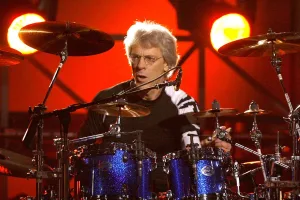 How natural was your decision to get three female soul singers in Police Deranged?
How natural was your decision to get three female soul singers in Police Deranged?
Can you imagine the poor fucker male singer who gets up there to sing Police songs? That would be cruelty to such an individual: You can’t replace Andy Summers (guitar) except with a giant orchestra and you can’t replace Sting, period. But those songs, to have three soul sisters on the mike, they do a pretty good justice to those songs, they are beautiful and in fact, it’s sort of like The Police sung by The Supremes.
Was it intriguing for you to make “Police Beyond Borders” (2023) album with Ricky Kej where Police songs are performed by renowned world music artists in different languages?
Yes sir! That was Ricky’s idea, that’s why we get along so well because he has brilliant concepts and this is one of them. He took the recordings that I made for the album “Police Deranged for Orchestra” (2023), he took the orchestral and the percussion and everything, he took all the music and took it around the world. One of my favorite things was to send Sting “Tea in the Sahara” in Chinese and I like to think of how he must have gone cross-eyed hearing that, but he did like the Indian “King of Pain”.
Do you think that the fact that the BBC banned “Can’t Stand Losing You” (ed: from “Outlandos d’Amour” -1978) helped The Police?
Well, of course, it was just the publicity that it gave for us. They didn’t “ban” us, they just chose not to play our record, they didn’t like it. So, as far as we were concerned (ed: he shouts) : “Banned by the BBC!!!” Well, it didn’t work, not until much later when they did play it and the song itself created the success, not the fake publicity.
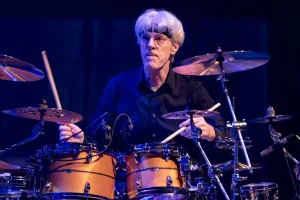 Whose idea was the cover of “Can’t Stand Losing You” single (1978) where you are standing on a block of ice with a noose around your neck?
Whose idea was the cover of “Can’t Stand Losing You” single (1978) where you are standing on a block of ice with a noose around your neck?
That was the art director, Mike Ross. But it was comedic, it was a bit of wit, which is what it’s so cool about the song and Sting is so good at this: It’s a tragedy but he finds wit in it. “Can’t Stand Losing You” is a song about suicide but when you listen to the lyric you do have a smile on your face.
“Reggatta de Blanc” (1979) is your favorite Police album. What’s so special about this?
The fact that we recorded it very spontaneously and we were in a very good mood. While we were touring with “Outlandos”, the first album and achieving success and rising up and growing and playing audiences who were enjoying what we were doing and we were improvising and developing our sound, that was a very creative period for us, getting all the aforementioned and glory, really got our mojo up. So, when we went into the studio for “Reggatta”: A) We did not have enough songs B) We were full of mojo and we came up with a lot of it, right there, in the studio. Sting had written some very important songs but not a whole album. So, we went in there just full of the drive and made it up on the spot and that was a very fun and creative exercise.
Do you have any memories from the Athens concert with The Police in 1980?
Yes, I do. Greece was not the country that is today. I don’t need to give you a Greek history lesson, but in 1980 they hadn’t had a band there or any kind of rock ‘n’ roll or any counterculture for decades. I think the Rolling Stones had played there at some point.
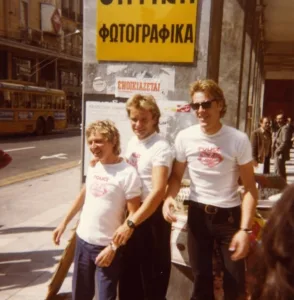
Yes, in ’67.
(Ed: Surprised) ’67?! Ok, so, 13 years had gone by. To put it mildly, that was one of the most enthusiastic audiences that we ever played for. There was a riot outside because the hall wasn’t big enough and there was a mob outside and they used tear gas, you probably know this better than I remember it. The dressing rooms were belowground, the tear gas came down into the dressing rooms, which added a certain drama to the occasion and when we went out on stage the power, the excitement, the electricity, the energy was quite something. That is a very memorable gig.
I used to read that the only rule in punk rock is that there are no rules. But…
(Ed: He interrupts me) Ha! Punk rock has more rules than jazz.
You ‘ve said that you shouldn’t write a song about love, you shouldn’t have a guitar solo, you shouldn’t write a song over 3 minutes, you shouldn’t wear bell-bottoms, you should only write about being pissed off, you should have short hair. So, there is a big contradiction between the seemingly revolutionary spirit of punk and the strict rules, isn’t there?
Exactly. Yes, you are very observant on that and I, too, have snickered to myself over this dichotomy between supposedly it was “Burn it all down”, but, in fact, it was extremely conservative: They all dressed the same, they had espoused the same ethics, they had the same strict rules and it was only when The Police escaped from those rules that we became the band that we became. But that punk period did serve us, artistically, in that. Because of those punk rules we had to distill our grand musical ideas into a much more clean, efficient system. Sting was writing jazz riffs and long things, but the punk thing “verse-chorus-verse-chorus-bridge-verse-chorus-you‘re done”, that discipline combined, then when Andy joined, with his harmonic sophistication; that combination of the discipline and the huge vocabulary of Andy and Sting musically, that’s what it made it happen. But that discipline of the punk rules during our inception and gestation period, served us well.
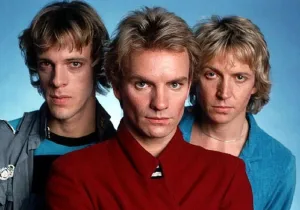 Would you like to share with us the story about Andy Summers (The Police -guitar) and George Martin (The Beatles producer) during “Synchronicity” (1983) sessions in Montserrat, in the Caribbean?
Would you like to share with us the story about Andy Summers (The Police -guitar) and George Martin (The Beatles producer) during “Synchronicity” (1983) sessions in Montserrat, in the Caribbean?
Now, you’ll understand and I’ll confess to you, as you know probably, I’ve guessed already: Any question about The Police, what you ‘ll get is material, because I’ve answered this question before and now it comes out like the story and I apologize for that, but you did ask and it’s a story that I’ve told a few times about how in the last album we were recording on Montserrat when the tensions got so high that we finally didn’t function anymore. We couldn’t move forward, we were stuck, we were dead in the water thinking: “How can we go forward?” and we heard that George Martin who owned the studio (ed: AIR Montserrat) had his mansion on the next hill over, so, we sent Andy up to go talk to George Martin and see if he can come and help us and if he can produce our album. So, Andy takes off and he goes down the hill through the jungle, he crosses the river at the bottom, he climbs up the other side, he gets to the big mansion and George Martin takes him in, makes him a nice cup of tea, he sits him down and says: “Well, how can I help?” and Andy said: “Ah, I’ve got this fuckin’ noisy drummer and this fuckin’ singer, they are all assholes except for me. We can’t go forward”. I’m making up the Andy conversation. “We need you to come and produce us” and George Martin, no fool, a man of great wisdom and experience, declined. He said: “Well, no. Here is the thing: I think, you guys, can figure it out and do it yourselves” and Andy replied: “Oh, really?! Gosh, really?!” So, Andy took the message, this proclamation, down the hill, through the jungle, crossed the creek at the bottom, he climbed back up to the hill of the studio where Sting and I were waiting and we said: “What did he say? What did he say?” and Andy said: “Well, he said… he said… he said we can figure it out and do it ourselves”. We said: “No, really?! That’s what he said?! My God, that’s incredible! Wow!” Immediately, we were lit up by this proclamation by this wisdom. So, immediately, we said (ed: he speaks very quickly) : “Ok, what’s that song? Ok, can we? One, two, three!” and we recorded the rest of the album over the next four days.
In 2000 you worked on an unreleased project with Jeff Beck. What really happened?
He asked me to come and work with him, to make a record and we tried. Jeff Beck was, we could say, on the spectrum, which is another way of saying “he was a guitarist” and like many guitarists he is a moving target. So, I feel that I failed to produce an album, one of the failures of my life is that I didn’t get an album. We did get some incredible recordings, but Jeff was distracted by personal issues at the time and eventually, we couldn’t go forward. So, I failed. I said to his manager: “This isn’t happening, is it?” and the manager said: “Well, I guess not” and that was that. But I do have three or four great recordings which will never be released. Although, I might use them unannounced, uncredited for some other dark purpose on Instagram, but they‘ll never be released as Jeff Beck tracks. I have more Jeff Beck tracks that we recorded, at my brother’s, Miles (ed: former Police manager), retreat, in his castle in France where he would have a songwriter’s retreat. They would have 24 artists come together at his castle and work together for two weeks to produce songs. They produced a lot of hit songs that way. One class was singers looking for song for their album, one class was players to make music and the third class was lyricists to write words. So, we would have these sessions where we would put different people together just to see what comes up. So, Jeff Beck was there and my friend Armand Sabal-Lecco, the legendary bass player (ed: Paul Simon, Brecker Brothers) and they put us in a room, the three of us and just they would send a different singer every day and it was an ethnic one. This particular retreat was focused on world music, so, there were singers from all over the world, they would come in, we would just jam and we would come up with something and record it that evening and I’ve got those recordings, too. Jeff Beck, Armand and I with Amina and all these other international artists.
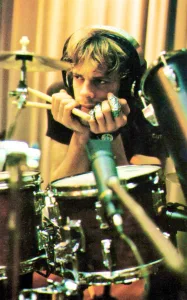 What are your thoughts now about the period you played in Curved Air?
What are your thoughts now about the period you played in Curved Air?
Great fondness, for those days. Very innocent. There I was just banging stuff. The band was sustained by the old wave, it still had a following. We could still play big gigs and make a decent living, but we could feel a sense of entropy, that the whole scene was winding down and losing altitude and that’s when punk happened and I jumped ship. Actually, with Curved Air I joined the band long after their hits. In fact, I like to say, I was the last rat to jump aboard the sinking ship.
Ken Loach is one of my heroes. Did you enjoy working with him on the soundtrack of his “Riff-Raff” (1991) film?
Yeah, that and two other films, “Hidden Agenda” (1990) and “Raining Stones” (1993). He is very much art of art’s sake and we come from different worlds, but we made three films together, even though, I’m a bloodsucking capitalist and he is a Maoist communist, but he forgave me for my capitalism by saying that I’m an upside down pyramid: I do all the work, I’m the worker. He ‘d come and work with me at my studio in England where I had the obligatory rock star’s estate, with a polo field at the end of the garden, a full studio and cooks, all the things you ‘d expect to find in an estate like that and he said I’m the worker and I create the wealth that I distribute to all the cooks, the stable people and everyone else. So, I’m a good thing. Another aspect of Ken Loach is that he needed very little music. His drama feeds the emotion, which is what drives any movie but particularly his. The emotion comes from the performances that he got from those actors and they only needed the tiniest bit of suggestion from the score to point them in the right direction. It was mostly just a tone would come in and then go away. Any time you can hear music playing it was like: “What’s that? Why is somebody playing music?” The most dramatic scene in “Raining Stones”, I sobbed, I remember the scene, I could not touch it. It was so powerful, so, if I put a music in it, it would ruin it! So, the Kean Loach films required very little contribution from me, but I was very honored to make even that small contribution.
How much has your approach to drums changed over the years?
Quite significantly. When I played in a rock band it was all about volume and cutting through and I’ve got on my left and on my right 5 billion Watts of power and I got to compete with that. My instrument is designed to compete with that, they are loud. Rock drums sets are designed to be loud as fuck. Ok, decades go by and now I’m an orchestral composer and I’m trying to play my drums with an orchestra. Something that many people don’t appreciate is that an orchestra, even though when you are in the concert hall it sounds magnificent and huge, that is because there isn’t somebody banging a snare drum or playing through a Marshall amp. The difference in volume is profound: That concert with an orchestra is much quieter. It feels powerful because of the environment and the rich sonority and the textures of the sound, but the different in volume is profound. So, when I go in there with my drums, holy shit, you can’t hear the orchestra! So, I had to lower over the years, it took a very long time. I’m still improving in this regard, I can play very quietly. The good thing is that you would think if I am playing quietly I would sound like a mouse, but no. In fact, I have more power, more dynamic range. When I want to break your head I go “bang” and I’ve got it all right there, but I don’t have to. I can create that quieter expectation. The drums sound fantastic when you are not trying to kill them. There are all kinds of things that I can do with the drums that you would never hear in a rock environment: Lots of details, expressive stuff that you would never hear in a rock band. So, my instrument has a much wider vocabulary and much more emotional range, as well as dynamic range and best of all, none gets a headache.
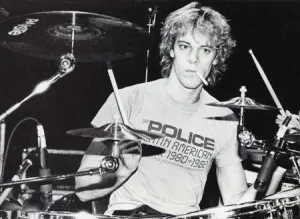 How much different is the audience in an Oysterhead concert and a Police one?
How much different is the audience in an Oysterhead concert and a Police one?
Well, The Police audience is normal people. Oysterhead audience is a very special kind of audience and they are the jam band audience, which is very similar to jazz audience. You know, I like to make fun of jazz and I say terrible things about jazz, but I have to clarify that I love jazz fans. The people who listen to jazz and the people who listen to jam bands are my favorite people on the planet because they wanna hear you play, not serve a song. Police fans want to hear that song and that’s why they come for and they know when the chorus is coming, they sing along and they know the song and that’s a very uplifting experience: Playing songs that people know. Oysterhead and jam bands, nobody knows what’s gonna happen next, it’s all made up on the spot. It’s completely improvised, it’s unexpected and there are the same surges at times when we are lost in front of a paying audience, we are dead in the water, “Ok, we’ll work this riff now. We’ve got to do something. We are dead” and I can see that the audience get it. This make it real, this proves is not some prefabricated packaged entertainment. This is being made right in front of their eyes and Trey Anastasio (ed: Phish -guitar, vocals) comes in with a searing riff, Les Claypool (ed: Primus -bass, vocals) picks it up and we rock out and the surge of the audience when we connect, it just like when we hit the chorus of “Roxanne”; it’s that same surge. So, it’s very undisciplined. In The Police we rehearsed our 2-hour set for 4 months for the reunion tour (2007-‘08)! In Oysterhead we rehearsed our 2-hour show for 20 minutes! The rest of it we make up every night. You’ve got to have serious players to pull that off, by the way. With Les Claypool and Trey Anastasio they can carry that kind of thing.
You were close to Neil Peart (Rush -drums). Was he an easy-going person to hang out with?
For me, he was, but not out in the world. He was actually very shy and afraid, in a way, of his stature. He was very-very agitated by fans, they scared him, they turned him into a different guy. With me and with musicians, he was very affable, but he was actually quite a complicated man and I found him very friendly. He came over here a million times, he would talk forever and I’d go to his Bubba Cave -where it wasn’t full of drums, not a drum in the whole place, it was full of cars and motorcycles- and we ‘d just hang out and shoot the shit. His buddies, Geddy (ed: Lee -Rush bassist and vocalist) and Alex (ed: Lifeson -Rush guitarist) are also excellent human beings. So, yeah, we were very close. He came over here and jammed many times. You can see him jamming over here on Youtube.
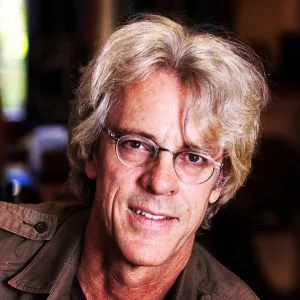 I know. I recognize the background I see now on your camera. Why do you love The Beatles more now than you used to?
I know. I recognize the background I see now on your camera. Why do you love The Beatles more now than you used to?
Because I have more sophisticated ears and can appreciate the deep sophistication of their music. When I was receiving it as a teenager I didn’t care about how they made it. I could just hear the main elements and I liked them, but I was more actually into Jimi Hendrix, Cream, progressive music and music that was about the players rather than the song. But now in my ancient wisdom, I can appreciate the sophistication of The Beatles music. By the way -and I’ve asked Ringo (ed: Starr- drums) about this- they never expected their music to last. The same with The Police, we made the music and The Beatles say they did too, as a sandwich, fast food. Eat it now, forget it, we’ll make another one tomorrow. They never dreamed that their music would live on for decades and decades and now half a century. There are songs that are gaining momentum and they never saw that coming, nor did we. I think the turning point was about in the year 2000-ish, when young people, God bless them, realized that the originals of all their music they listen to have more zeal than the children, the offspring of that music and they started going back to the originals: To Led Zeppelin, to The Beatles, to the Rolling Stones, even The Police. So, long after we all thought our time in the spotlight had come and gone, suddenly those kids starting in around 2000 rediscovered the originals and old school became a good thing. OG meant “original” rather than the latest coolest stuff. There was this appreciation for old school, so, that was an unexpected blessing for all of us old bastards.
Had you ever discussed with your father (Miles Copeland -one of the founding members of the CIA) the JFK assassination?
No, there was very little known about it. Most of the conspiracy theories have happened in the decades since. When it happened, we were all blown away, of course, but the conspiracy theories hadn’t really sprawled yet. So, there wasn’t anything for him to have an opinion about yet, at that point.
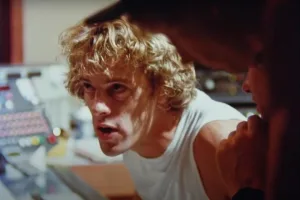 Kenney Jones (Faces, Small Faces, The Who -drums) said that once he sort of kidnapped Roger Taylor (Queen -drums) to play polo with you and Mike Rutherford (Genesis -bass). Do you remember that incident?
Kenney Jones (Faces, Small Faces, The Who -drums) said that once he sort of kidnapped Roger Taylor (Queen -drums) to play polo with you and Mike Rutherford (Genesis -bass). Do you remember that incident?
Yes, the kidnapping was unsuccessful. Actually, Mike Rutherford, Kenney Jones and me, we had a team called “Los Machos”, we lost every game, but never mind. We would play in this fancy Sunday games with sponsors and we’d end up losing the game, but getting a Breitling watch just for participating and having a lot of laughs, it was a lot of fun. But we tried to get Roger Taylor, we brought him to a game and it just so happened that that day was pouring with rain.
A huge “THANK YOU” to Mr. Stewart Copeland for his time. I should also his assistant, Katie, Mr. Flatt and Mrs. Holly Stokes for their valuable help.
Stewart Copeland “Wild Concerto” is released on Platoon Records, 18th April 2025: https://platoon.lnk.to/WildConcerto
Official Stewart Copeland website: https://www.stewartcopeland.net/
Official Stewart Copeland Facebook page: https://www.facebook.com/StewartCopeland

